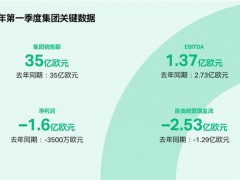? 世界將能夠快速有效地擺脫化石燃料的說法在今年遭到了嚴重破壞。
? 與此同時,氣候變化的問題只會越來越嚴重,減少排放的必要性是不可否認的。
? 最終,在確保能源安全的前提下,切實減少碳排放是唯一的出路。
據美國油價網7月11日報道, 去年在格拉斯哥舉行的第26屆聯合國氣候變化大會上,與會國家承諾將減少對煤炭的依賴,但自那以來,這一承諾取得的進展非常有限。與此同時,國際能源署(IEA)在其題為《2050年凈零排放》的年度報告中警告說,如果世界要在2050年前實現凈零排放目標,就不應該在石油、天然氣和煤炭開發方面進行新的投資。那是在2021年。今天,洪澇災害正在席卷孟加拉國、印度等國。糧食短缺正在發展中國家造成問題,秘魯、斯里蘭卡和厄瓜多爾等國遭受大規模抗議活動和政治不穩定。與此同時,前所未有的熱浪造成了大規模的停電。
7月早些時候發生的洪澇災害已造成101人死亡,大約700萬孟加拉國人仍然需要幫助。與此同時,印度的洪水已經導致數百萬人流離失所,另外還有水傳播疾病的挑戰。與此同時,由于能源短缺,巴基斯坦遭遇了創紀錄的熱浪,這意味著今年早些時候,一些地區每小時都在經歷用電限制。
這些發展給全球政策制定者帶來了挑戰,一方面,他們強調了應對氣候危機的必要性,另一方面,他們也強調了一個事實,即突然的轉型將是致命的。
極端天氣,如熱浪和洪水,或干旱,如籠罩加州的氣候變化,凸顯了解決氣候變化問題的緊迫性和重要性。然而,這不太可能通過減排來實現,特別是根據《經濟學人》的數據,目前全球排放量比疫情前高出0.6%。
在世界遭受氣候變化之苦的同時,由于地緣政治沖突和投資不足,能源短缺也在加劇。這就是現代政治決策的困境所在。
世界需要無論排放多少都會消耗的能源。然而,如果這種能源的排放足跡很小,對地球會好得多。問題是,我們現有的低碳能源還不足以取代化石燃料。因此,現在也許是時候開始考慮適應變化的氣候,而不是自欺欺人地認為我們可以在幾十年內逆轉數百年的進程。
當前,能源安全優先于減排。作為凈零排放運動的倡導者之一,德國正在緊急建設液化天然氣進口終端,并增加燃煤發電,以彌補產能大國天然氣預期的短缺或中斷。
與此同時,美國將訪問沙特阿拉伯,雖然官方說法是他去那里不是為了要求更多的原油,但人們普遍認為,原油是美國這次訪問的關鍵因素。在通貨膨脹率達到40年高點的同時,美國人開始厭倦創紀錄的高油價,政府需要對此做些什么。減排已被放在次要位置,但很快將再次成為重點。
所有這些都指向一個事實:人類在一段時間內仍將需要能源。由于大部分能源仍然來自并將繼續來自化石燃料,現在可能是時候改變氣候變化的調子,讓它突然轉型到更現實的東西。
在這方面,埃爾南德斯分析公司負責人、駐蘇格蘭商業大使提出的解決方案很有啟發意義。能源籃子方法采取一種非二元方法,提倡建立一個傳統燃料和可再生能源混合的電網,以完全轉向可再生能源為長期目標。它也迎合了目前的主要政策問題,即應急計劃方面的能源管理。
此外,兩位作者認可的另一種方法是,認識到途徑的重要性,并轉向能源轉型多元化。這意味著世界應該預料到,不同的國家將有不同的途徑來實現凈零排放。
對全球能源轉型采取一種全面的方法是當務之急,當前的地緣政治緊張局勢給了我們一個非常需要的現實檢查。
李峻 編譯自 美國油價網
原文如下:
Solving The Energy Transition Conundrum
· The narrative that the world will be able to quickly and effectively move away from fossil fuels has been majorly undermined this year.
· At the same time, the problems of climate change are only getting worse and the need to reduce emissions is undeniable.
· Ultimately, a realistic approach to reducing emissions while ensuring energy security is the only way forward from here.
The COP26, held in Glasgow last year, saw participating countries pledge that they will wean themselves off coal, a promise that has seen very limited progress since. Meanwhile, the IEA in its annual report titled Net Zero by 2050 warned that if the world is to reach the net-zero goal by 2050 there should be no new investments in oil, gas, and coal developments. That was in 2021. Today, floods are sweeping Bangladesh, India etc. Food shortages are causing problems in the developing world with countries like Peru, Sri Lanka, and Ecuador suffering from large-scale protests and political instability. Meanwhile, heat waves of unprecedented magnitude have caused blackouts on a massive scale.
about 7 million Bangladeshis are still in need of help in the aftermath of floods that killed 101 people earlier this month. Meanwhile, floods in India have displaced millions and there has been an additional challenge of water-borne diseases.
Meanwhile, Pakistan has been baked by a record heat wave amid an energy shortage which meant that some areas were experiencing load-shedding every hour earlier this year.
These developments present a challenge to global policymakers as, on the one hand, they highlight the need to address the climate crisis and, on the other hand, they have also emphasized the fact that an abrupt transition will prove fatal.
Extreme weather such as heat waves and floods—or droughts, like the one looming over California—highlight the urgency and significance of addressing the issue of climate change. Yet, this is unlikely to happen through emission reduction, especially since, per The Economist, the amount of global emissions is now 0.6 percent higher than before the pandemic.
While the world suffers from the changing climate, it is also suffering a deepening shortage of energy due to geopolitical conflicts and underinvestment. This is where the dilemma of modern political decision-making lies.
The world needs energy that it will consume regardless of emissions. Yet it would be much better for the planet if this energy comes with a small emission footprint. The trouble is that the low-carbon energy we already have is not performing well enough to replace fossil fuels. It might, therefore, be time to start thinking about adapting to the changing climate rather than deluding ourselves that we can reverse processes that took hundreds of years within a couple of decades.
Right now, energy security is taking precedence over emission reduction. Germany, one of the champions of the net-zero movement, is urgently building LNG import terminals and increasing coal power generation to make up for an anticipated shortage ofgas.
Meanwhile, the U.S. is traveling to Saudi Arabia and while the official line is that he is not going there to ask for more oil, it is widely accepted that oil is a key factor in the visit. Americans are beginning to get tired of record-high prices at the pump while inflation runs at 40-year highs, and the Gov needs to do something about it. Emissions reduction has taken the back seat, but it will soon become a major focus again.
All this points to the fact that humankind needs energy. Period. And because most of that energy is still coming from and will continue coming from fossil fuels, it may be time to change the climate change tune about an abrupt transition to something more realistic.
免責聲明:本網轉載自其它媒體的文章及圖片,目的在于弘揚石化精神,傳遞更多石化信息,宣傳國家石化產業政策,展示國家石化產業形象,參與國際石化產業輿論競爭,提高國際石化產業話語權,并不代表本網贊同其觀點和對其真實性負責,在此我們謹向原作者和原媒體致以崇高敬意。如果您認為本站文章及圖片侵犯了您的版權,請與我們聯系,我們將第一時間刪除。







